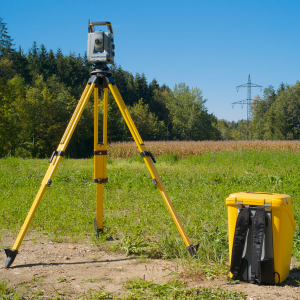
Understanding US Land Purchase Closing Costs
US land buyers must grasp closing costs to navigate the real estate market. Buyers must pay closing costs to complete a real estate deal.
Insurance and escrow services protect against ownership disputes, as well as paperwork and monetary management during the sale period. Appraisal and financing costs also need to be taken into account because they ensure an accurate assessment of the land.
Recording charges apply for obtaining the deed registered with local government offices. Attendant charges may arise for some form of counsel or legal representation. Buyers will also bear the costs of Land Survey, Transfer Taxes by the State or Municipality, and Local Transfer Taxes.
Awareness of these aspects helps buyers plan accordingly for land acquisition while avoiding overspending due to inadequate estimations of closing costs.
The Key Factors Influencing Land Purchase Closing Costs
Knowing what factors affect closing costs when buying land is vital. Land acquisition closing costs depend on several factors.
Location is crucial; premier places with higher demand pay higher taxes and insurance costs. Complex transactions may involve substantial legal services or title searches, which increases prices.
Title insurance also protects against property ownership issues. Surveying expenses are necessary to minimize disputes and ensure accurate border measurements.
When financing is involved, closing costs can be increased by adding loan origination fees and appraisal costs. Local government recording fees also contribute to regional pricing differences.
Understanding these factors enhances the budgetary skills of real estate buyers concerning land purchases.
Land Closing Costs: A Breakdown
Understanding closing expenses is vital when buying real estate land. These charges often include many necessary selling fees.
A title search fee is paid to check whether the seller can transfer ownership and whether there are no unresolved liens on the property. Title insurance is frequently needed to protect against future claims or disputes regarding ownership.
Survey expenses arise from needing a new survey to confirm a property’s boundaries and dimensions. Compliance with the local jurisdiction incurs attorney charges for reviewing documents.
Local governments levy recording fees to keep the transaction in public records, and state and local transfer taxes may contribute to the cost of property transfer.
Lastly, escrow fees compensate a third-party firm for fund and paperwork custody throughout closing, ensuring all sale conditions are completed. Buyers require stringent budget management when dealing with real estate to accommodate themselves with all the above closing fees.
Compare Land vs. Residential Closing Costs
Buyers must recognize the differences in closing costs for land and residential properties. In the case of land, closing costs typically include title insurance, surveys, and recording fees to ensure a clear transfer of ownership.
These expenditures can differ significantly from home buying. Homes require extensive investigation and funding. Therefore, mortgage origination fees, private mortgage insurance (PMI), and house inspection fees are generally required.
Environmental or soil studies may be required to ascertain the extent of development in land purchases. Land purchases differ from residential real estate agreements in that they do not require property appraisal, contributing to lower closing costs.
Prospective purchasers must understand these differences in order to budget and plan their real estate purchases.
Estimating U.S. Land Closing Costs

Consider many essential factors when determining closing expenses for buying land in the U.S. These can significantly affect your budget. Title insurance protects against property claims, appraisal fees define the land’s market value, and survey fees ensure exact boundary lines.
Recording fees are required to document the transaction with local authorities. Buyers who seek legal advice should also consider attorney fees.
Remember that costs vary by state, county, and lender criteria when buying land. A more accurate estimate can be obtained by researching and talking with real estate professionals.
Understanding these factors will help you make financial judgments when buying real estate in different U.S. regions.
Land Purchase Closing Legal and Administrative Fees
Land buyers must grasp the variety of legal and administrative closing costs. These fees often include several levies that might significantly increase land acquisition costs.
Attorney fees often cover title searches, contract preparation and approval, and local real estate law compliance. Administrative fees may include document preparation, notary services, and government paperwork filing.
Buyers may also pay county recording fees and state or municipal transfer taxes. Knowing these potential charges beforehand helps you budget and minimize unexpected closing costs.
Understanding these legal and administrative aspects assures compliance and protects your investment by gaining clear ownership rights to the property you’re buying.
The Role of Title Insurance in Land Transaction Costs
Title insurance is vital to real estate closing costs for land purchases. This insurance protects against post-purchase title discrepancies, disputes, and claims.
Land buyers face ownership history hazards such as concealed liens, public record inaccuracies, and fraud. Title insurance mitigates these risks by resolving property rights disputes without costing the buyer.
This insurance is paid once during the closing and verifies property titles to protect buyers and lenders. As part of closing fees, title insurance provides peace of mind and protects investment by averting costly land ownership disputes.
Land purchases in the real estate market require understanding its importance.
The Effect of Location on Land Purchase Closing Costs
In real estate, location is crucial since different regions charge different fees and taxes that affect closing costs. Urban closing costs may be more significant because of higher demand and complex regulations like zoning and environmental studies.
Rural sites may have reduced closing costs but higher land survey and infrastructure costs. Geographic variables like utilities and road access also affect closing expenses.
Title searches, legal services, and property insurance rates can also depend on local government regulations and customs. Understanding these geographical differences is crucial for budgeting closing costs for land purchases in different areas.
Land Purchase Closing Cost Negotiation

Negotiating reduced closing fees for land can save a lot in real estate deals. Buyers should first study their lender or real estate professional’s closing cost breakdown, identifying title insurance, recording, and appraisal fees.
With this knowledge, buyers can negotiate with vendors to cover some of these costs or request service provider discounts. To get competitive pricing, compare title company and lender quotations.
Real estate attorneys can detect superfluous charges and negotiate better terms, giving them more negotiating power. Local government or financial institutions closing cost assistance programs may also lower out-of-pocket costs for select buyers.
Buyers can lower land prices and comprehend the deal by carefully negotiating closing expenses and investigating resources.
Avoiding Land Purchase Closing Fee Mistakes
Avoid underestimating closing fees when buying land. Buyers sometimes ignore title insurance, appraisal fees, and survey charges in favor of the purchase price.
Another common mistake is not reading the closing disclosure form, which lists all land acquisition fees. Buyers should also avoid negotiating flexible or needless fees.
Engage a skilled real estate attorney to discover any closing expenses or surprises. Failure to consider property taxes and homeowners association dues can result in post-purchase financial surprises.
Understanding these potential problems will help you avoid costly blunders and guarantee a smooth land acquisition closing costs transaction.
Impact of Financing on Land Acquisition Costs
Understanding land finance alternatives is vital since they affect closing fees and acquisition costs. Buyers can choose between bank loans, seller financing, and land-specific loans, each of which affects financial burden differently.
Appraisal, title, and origination fees raise closing expenses for traditional bank loans. Seller financing may lower early costs by eliminating some loan fees but may increase interest rates over time.
Land-specific loans may involve costs for vacant land acquisitions but can help when regular mortgages fail. Each option has pros and cons regarding cost and land acquisition flexibility.
Understanding these intricacies helps purchasers make informed selections that match their financial goals and prevent unexpected land acquisition costs.
Purchase of Vacant Land: Tax Implications and Cost Structure
Understanding tax ramifications is essential when buying unoccupied land to analyze real estate transaction costs effectively. Buyers should know that local governments’ annual property taxes vary greatly depending on location and zoning.
At the sale, undeveloped land may pay a transfer tax or stamp duty as a proportion of the purchase price. If not accounted for, capital gains tax on future sales of idle land can reduce profitability.
To reduce taxable revenue, buyers should also investigate conservation easements and agricultural use exemptions. Understanding these factors helps with financial planning and eliminates unforeseen costs related to unoccupied property investments.
We purchase land throughout South Carolina and multiple other states, handling all legal details to ensure a hassle-free sale.
U.S. Survey and Appraisal Costs Land Deals
When buying land in the US, understanding survey and appraisal charges is essential for calculating closing costs. Land surveys are often needed to determine a property’s borders so buyers know what they’re buying.
This technique can reveal encroachments or easements that affect land value or use. Property size, location, and terrain complexity affect survey fees.
However, determining the land’s fair market worth requires an evaluation. Lenders require appraisals to verify that the loan amount matches the property’s value.
Like surveys, appraisal charges depend on market conditions and area price standards. Surveys and assessments protect buyers from land transaction disputes and financial disparities.
Buyers of undeveloped portions or rural properties in various U.S. locations might better budget by understanding these expenses.
Closing on Land: Hidden Fees
Understanding closing expenses is vital when buying land, as hidden fees might strain your budget. Buyers are typically surprised by title insurance fees, which protect against property lawsuits.
Land purchases must be registered with municipal governments, which requires recording costs. Transfer taxes vary by location and can add up quickly for buyers.
A new land boundary survey may include expenses to assure accuracy and zoning compliance. If financing is required, lenders may charge origination or application costs.
Attorney expenses for legal advice and document preparation may exceed expectations. Costly environmental evaluations may be needed to check for contamination or other hazards.
These hidden fees emphasize the significance of careful diligence in land purchases.
Real Estate Professional’s Impact on Vacant Lot Closing Costs
Real estate brokers heavily influence unoccupied lot closing costs. These experts know local real estate markets and can help buyers negotiate better terms, lowering closing expenses.
They help identify title insurance, attorney, and escrow expenses to avoid surprises at the deal’s conclusion. The agent’s contacts with surveyors and inspectors might result in discounts or preferred rates on closing-cost-related services.
Their contract negotiation skills help purchasers get sellers to reimburse costs or negotiate better terms. Experienced real estate professionals can also manage complex zoning restrictions and environmental studies that may affect vacant lot prices.
Their market experience and professional networks shorten the process and guarantee that all cost-saving alternatives are explored during land purchases.
How much does land closing cost?

Understanding closing costs is crucial for financial planning and land purchases. Land closing expenses typically range from 2% to 5% of the purchase price, depending on location and transaction details.
The closing costs for land transactions include title insurance, attorney, and recording fees. Buyers should consider appraisal, survey, and escrow fees.
Some jurisdictions add transfer taxes or other local government fees to closing costs. Buyers must consult their real estate professional or attorney to estimate these costs before buying land.
Understanding these elements will assist in closing a real estate transaction smoothly and avoid unexpected costs.
How Much Are US Property Closing Costs?
Understanding US property closing costs is essential for any real estate deal. Land purchase closing fees typically range from 2% to 5% of the property’s purchase price, depending on location and conditions.
The closing charges include title search, insurance, appraisal, and survey fees. Buyers should also consider varying state and local recording costs and property taxes owed.
Lenders may levy origination fees if financing the land acquisition. Buyers should ask their lender or real estate expert for a thorough breakdown of these fees early on to minimize surprises at closing.
Understanding these factors can help buyers budget and complete a seamless transaction in the competitive US real estate market.
Do land contracts have closing costs?
Understanding closing expenses is crucial when evaluating real estate land transactions. Land closing costs might include many fees that buyers should know.
Title search, appraisal, survey, and recording fees are standard. Buyers may incur escrow, attorney, and lender expenses if financing is involved.
Although land contracts differ from regular home acquisitions, these closing charges are essential for legal property ownership. Knowing these costs helps purchasers budget and avoid surprises at the end of the land purchase process.
Ultimately, understanding land contract closing expenses helps purchasers negotiate better terms and make informed real estate purchases.
How do you calculate property closing costs?
Understanding numerous major components is necessary to calculate closing costs, especially for land transactions. When calculating closing costs, consider appraisal, survey, title insurance, attorney, and recording fees.
Land appraisal and survey fees determine its market worth and boundary accuracy. Title insurance defends against title claims.
Attorney fees cover transaction legal assistance. Local authorities need recording fees to document ownership changes.
Buyers should get a thorough estimate from their lender or real estate professional early on to calculate closing costs. This will prevent surprises and account for all expenses.
Understanding these factors helps land buyers budget for their new investment in real estate.
Fast Land Offers makes selling your land easy by buying it directly with cash—no appraisals, financing, or drawn-out paperwork. You skip the hassle of closing costs like title searches, escrow fees, and transfer taxes, making the process fast, simple, and stress-free. Contact us at (843) 606-1001 to get your cash offer!